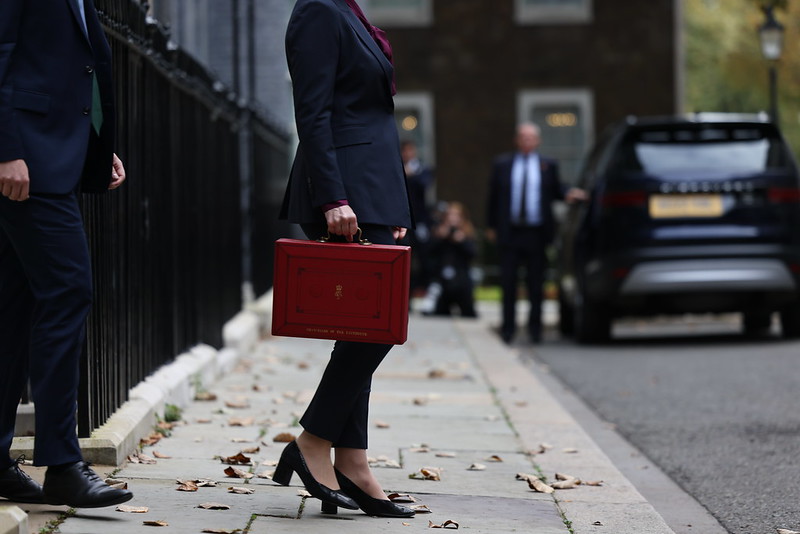Impact of UK Foreign Aid Cuts on Global Health and Education
 The United Kingdom (U.K.) government’s recent decision to reduce Official Development Assistance (ODA) spending has raised significant concerns among global aid organizations and policymakers. Announced in the 2024 Autumn Budget, this reduction lowers the U.K.’s aid commitment from 0.58% to 0.5% of Gross National Income (GNI) for the next two fiscal years, slashing approximately £2 billion from foreign aid funding. These U.K. foreign aid cuts bring the budget down to £13.3 billion in 2024-25 and £13.7 billion in 2025-26, reducing resources for global health, education and poverty alleviation programs.
The United Kingdom (U.K.) government’s recent decision to reduce Official Development Assistance (ODA) spending has raised significant concerns among global aid organizations and policymakers. Announced in the 2024 Autumn Budget, this reduction lowers the U.K.’s aid commitment from 0.58% to 0.5% of Gross National Income (GNI) for the next two fiscal years, slashing approximately £2 billion from foreign aid funding. These U.K. foreign aid cuts bring the budget down to £13.3 billion in 2024-25 and £13.7 billion in 2025-26, reducing resources for global health, education and poverty alleviation programs.
Impact on Health Programs
Reducing U.K. foreign aid is expected to significantly impact health initiatives supporting some of the world’s most vulnerable populations. For decades, U.K. foreign aid has funded essential health programs, including vaccination campaigns against diseases like malaria, HIV and tuberculosis and maternal and child health services.
The U.K., for example, has been a major contributor to the Global Fund to Fight AIDS, Tuberculosis and Malaria. In 2022, the U.K. pledged £1 billion to the Global Fund over three years. This funding has helped provide antiretroviral therapy to about 23 million people living with HIV, distribute 133 million insecticide-treated nets to prevent malaria and detect and treat 5.5 million cases of tuberculosis. The cuts can potentially reduce the U.K.’s contribution, impacting these life-saving interventions.
Vaccination and Disease Prevention
Reduced funding could immediately affect vaccination and disease prevention efforts in low-income regions. U.K. aid or ODA has been instrumental in helping programs such as the Global Fund and Gavi, the Vaccine Alliance, to supply vaccines and improve health infrastructure in Sub-Saharan Africa and other high-need areas. With less funding, these organizations may struggle to provide adequate immunization, increasing the risk of outbreaks.
Maternal and Child Health
Programs focusing on maternal and child health are likely to face significant challenges due to the cuts. An assessment by civil servants warned that thousands of women will die in pregnancy and childbirth and hundreds of thousands more will face unsafe abortions because of cuts to the U.K.’s foreign aid budget. For instance, the U.K. has been a key supporter of UNICEF’s maternal and child health programs.
In 2022, the U.K. contributed £39 million to UNICEF’s core resources. These funds have supported initiatives like providing skilled birth attendants and essential newborn care in low-income countries. A reduction in funding could limit the reach of these critical services, potentially affecting maternal and child mortality rates.
Clean Water and Sanitation
The U.K. has long supported clean water and sanitation initiatives in low-income regions. Reduced funding could limit the scale of these programs, compromising access to safe drinking water and adequate sanitation in areas that need it most. This, in turn, could lead to a rise in preventable illnesses linked to poor water quality and inadequate hygiene.
Impact on Education Programs
The U.K. foreign aid cuts are also expected to have a significant impact on education initiatives in developing countries. These programs have been crucial in improving access to primary education, particularly for girls and children in remote areas.
A specific initiative that could be affected is the Girls’ Education Challenge (GEC), funded by the U.K. government. Since 2012, the GEC has supported up to 1.5 million girls in 17 countries to improve their learning outcomes and find pathways for progression. The program has been particularly effective in conflict-affected areas like South Sudan and Afghanistan.
Reduced funding could limit the scope and reach of such transformative programs. Moreover, support for education has been particularly affected by previous cuts, dropping from a high of 13.5% of the aid budget in 2013 to just 3.7% in 2022. Further reductions could exacerbate this trend, potentially leaving millions of children without access to quality education.
U.K.-funded programs have been instrumental in promoting girls’ education in many countries. The cuts may limit the reach of initiatives aimed at keeping girls in school, potentially affecting gender equality in education and long-term economic opportunities for women.
Organizations Working to Mitigate the Impact
Despite the challenges posed by these cuts, several organizations are working tirelessly to mitigate the impact. Education Cannot Wait (ECW) is one such organization, a global fund dedicated to education in emergencies and protracted crises. ECW is actively mobilizing resources and partnerships to ensure that children in the most vulnerable situations continue to have access to quality education.
In 2022, ECW investments reached 7 million children and adolescents – 48% of whom are girls – with quality education in 32 crisis-affected countries. The organization has also leveraged an additional $1.1 billion in co-funding toward these programs. Such efforts demonstrate the ongoing commitment of the international development community to finding innovative solutions in the face of funding challenges.
Looking Ahead
While the U.K. foreign aid cuts pose significant challenges to global health and education programs, the international development community remains committed to finding innovative solutions. By supporting organizations like ECW and advocating for sustained investment in global development, organizations and individuals could work toward ensuring that the world’s most vulnerable populations continue to receive the support they need.
– Isabel Gallagher
Isabel is based in Dorset, UK and focuses on Politics for The Borgen Project.
Photo: Flickr
